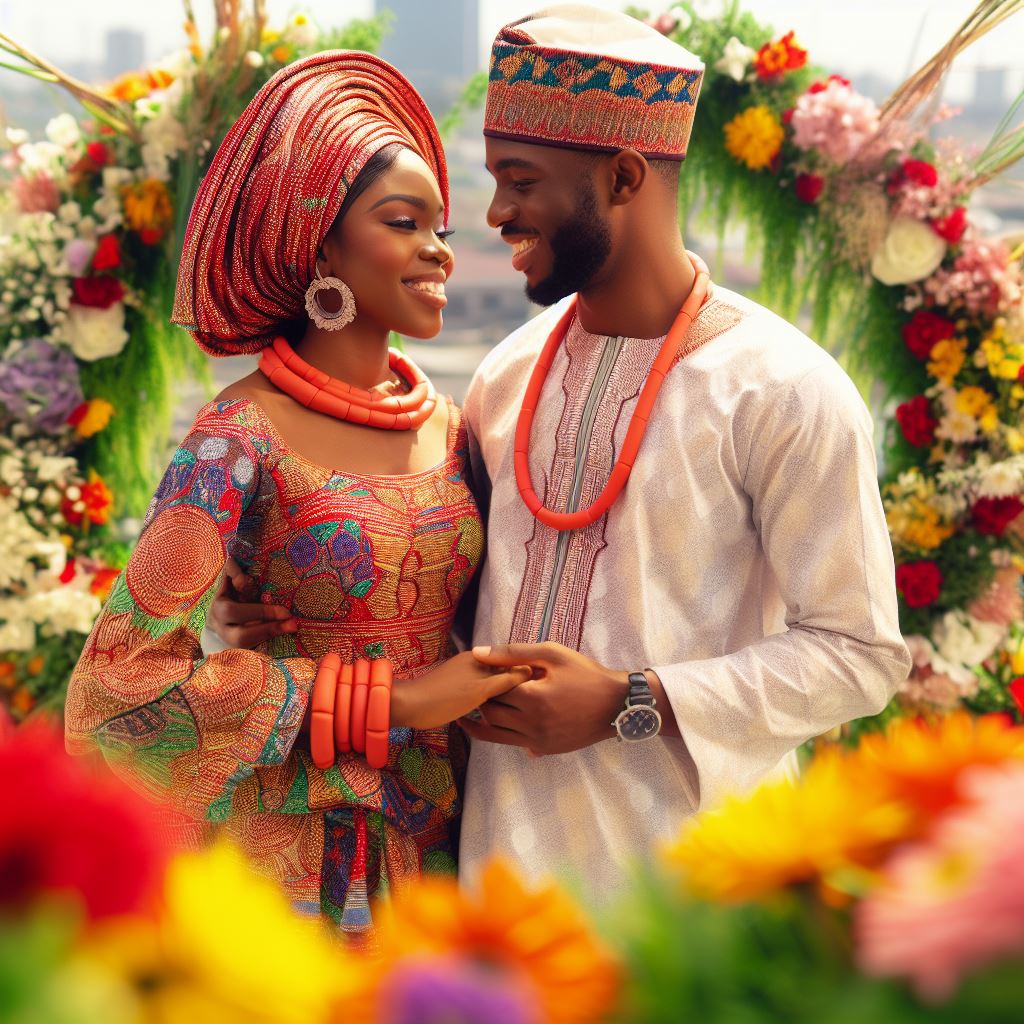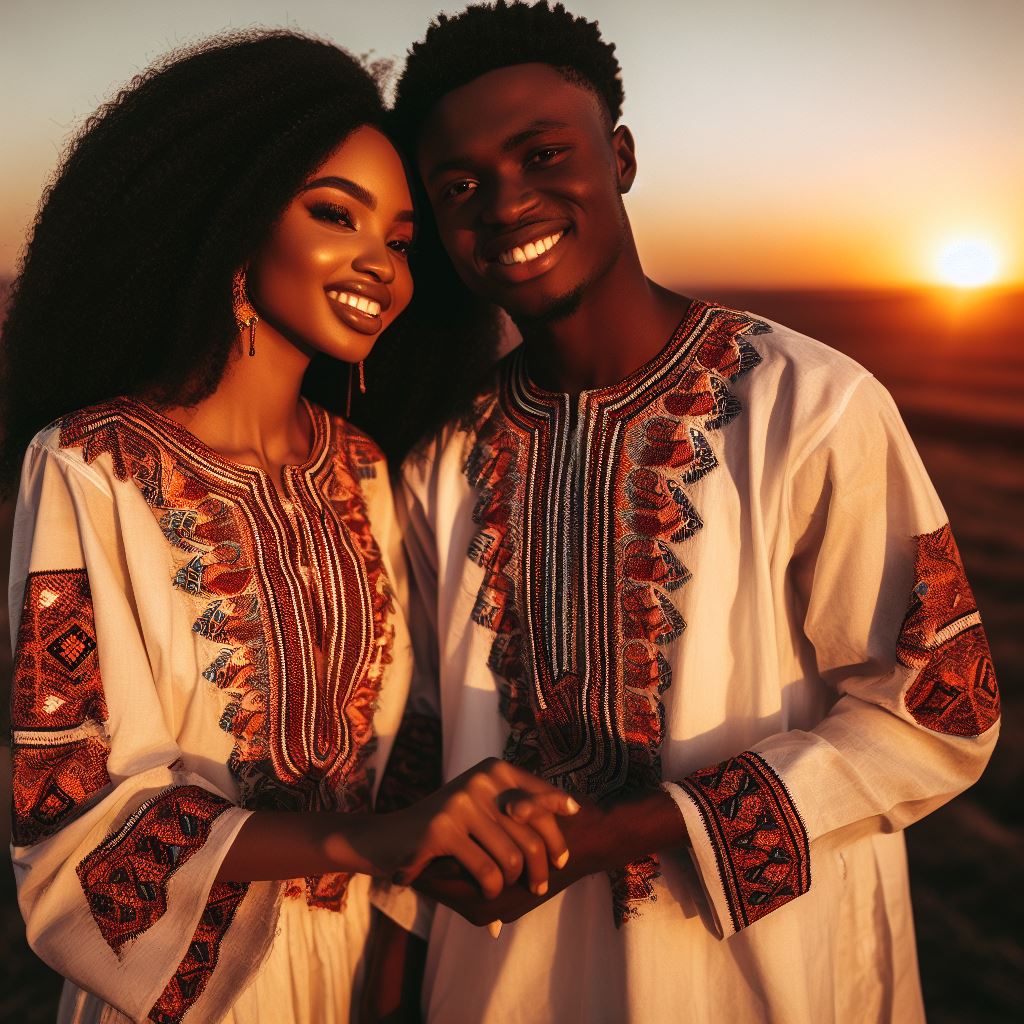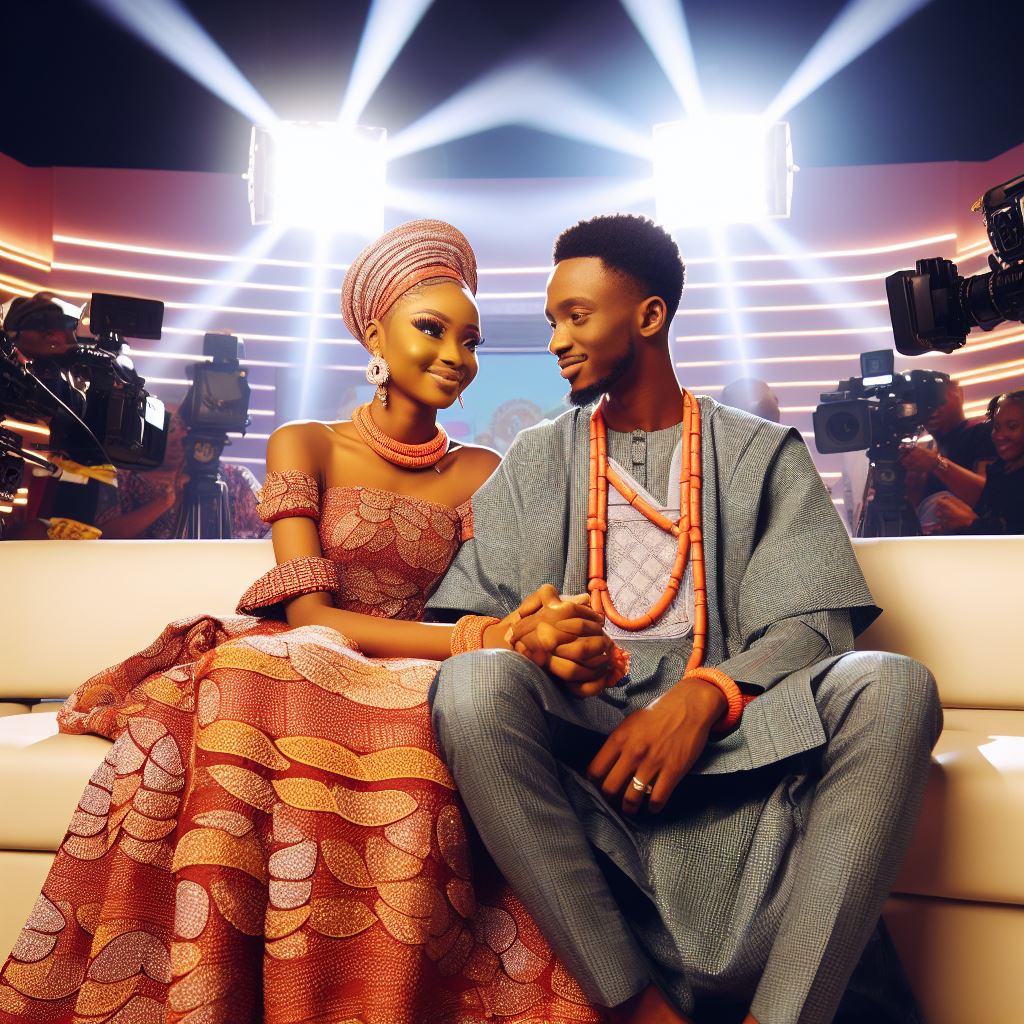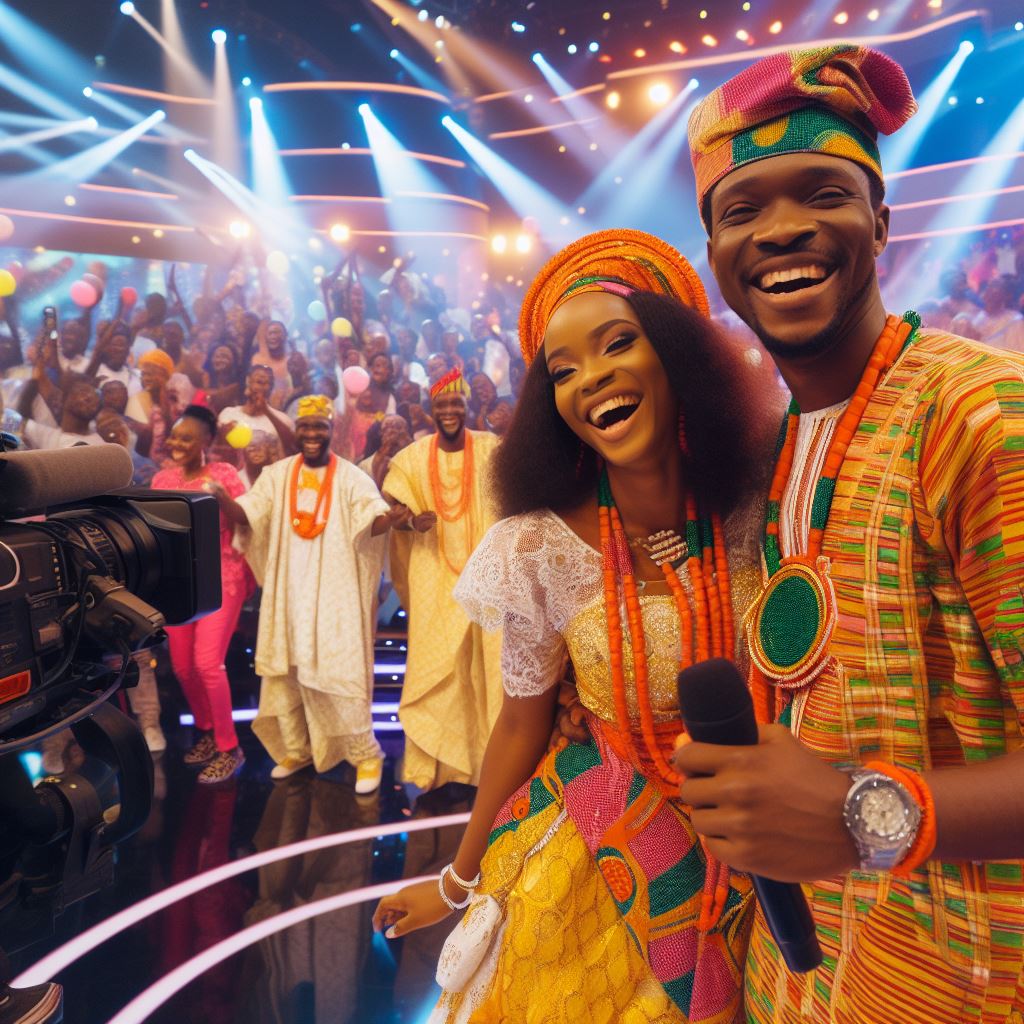Introduction
Married at First Sight (MAFS) has become a household name, transcending borders and cultures.
This intriguing TV series takes a daring approach to love and relationships, as it matches total strangers in matrimony, the moment they meet.
The global fascination with the show lies in the unpredictability of these pairings and the subsequent exploration of their compatibility.
In recent years, MAFS has landed in Nigeria’s entertainment scene, and it’s making waves.
From bustling Lagos to serene Abuja, this reality TV experiment has taken the nation by storm.
The very idea of marrying someone you’ve just met, with no prior knowledge or even a glance at their photo, has ignited passionate debates at homes, offices, and gatherings across the country.
Many see this phenomenon as a daring exploration of love in the digital age, while others view it as a reckless game with people’s lives and emotions.
The Nigerian perspective on MAFS reflects the country’s diverse cultural tapestry, with opinions ranging from traditional to progressive.
In this blog series, we’ll dive deeper into the ‘Married at First Sight’ phenomenon from Nigeria’s standpoint.
We’ll explore the cultural nuances, the impact on relationships, and the lively debates that have arisen as this international sensation unfolds on Nigerian soil.
Explanation of “Married at First Sight”
A. Overview of the Reality TV Show
“Married at First Sight” (MAFS) is a captivating reality TV show that challenges conventional notions of love and marriage.
This unique social experiment originated in Denmark but has since become a global sensation.
The premise is simple yet intriguing: complete strangers willingly tie the knot, having never met before.
The show documents their journey as they navigate the complexities of married life, from the honeymoon to daily living and everything in between.
B. Participant Selection and Matching
- Rigorous Screening: MAFS participants undergo exhaustive psychological and background evaluations. This ensures their readiness for the unconventional journey.
- Expert Matchmaking: A team of relationship experts, including psychologists and sociologists, carefully match the couples based on compatibility, values, and personality traits. Their aim is to create lasting, harmonious unions.
- Comprehensive Profiles: Participants provide in-depth information about themselves, allowing the experts to make informed decisions. The goal is to foster genuine connections.
C. Goals and Objectives of the Show
- Test the Boundaries of Love: MAFS seeks to challenge the traditional approach to marriage. Can love truly conquer all, even in unconventional circumstances?
- Promote Self-Discovery: By pushing individuals out of their comfort zones, the show encourages personal growth and self-awareness.
- Marriage as a Commitment: MAFS emphasizes the importance of commitment, as couples strive to make their arranged marriages work, despite initial skepticism.
- Showcasing Real Relationships: The show offers viewers a glimpse into the raw, unfiltered challenges and joys of married life. It’s an opportunity to learn from real-world relationship dynamics.
In Nigeria, “Married at First Sight” sparks discussions on love, commitment, and the role of arranged marriages in the modern world.
It’s a phenomenon that continues to captivate audiences and challenge societal norms.
Read: Couples of the Bible: Stories and Marriage Verses
Nigeria’s Perspective on the Phenomenon
A. Initial Reactions and Opinions
- Nigerians initially had mixed reactions towards the show, “Married at First Sight”.
- Some individuals were curious and intrigued by the concept, while others were skeptical and opposed to it.
- Many Nigerians questioned the effectiveness and sustainability of marriages formed in such a manner.
- A significant number of people expressed concerns about the emotional well-being of the participants.
- Some viewed the show as a form of entertainment and were interested in witnessing the outcomes.
B. Cultural and Societal Influences
- Nigeria’s cultural and societal factors play a significant role in shaping the perspectives towards the show.
- Traditional beliefs and practices heavily influence Nigerians’ understanding of marriage and relationships.
- Arranged marriages, common in Nigeria, could contribute to the skepticism towards “Married at First Sight”.
- Many Nigerians prioritize family approval and involvement when it comes to choosing a life partner.
- The perception of marriage as a sacred institution is deeply ingrained in Nigerian culture.
C. Importance of Traditional Marriage Customs and Values
- Nigeria places great emphasis on the importance of traditional marriage customs and values.
- These customs reflect the cultural heritage and identity of the Nigerian people.
- Traditional marriage ceremonies in Nigeria symbolize unity, family ties, and the merging of two families.
- Nigerians believe that marriages arranged based on these customs have a higher chance of success.
- The idea of marrying a stranger without the time to establish a foundation is contradictory to traditional values.
Basically, Nigeria’s perspective on the phenomenon of “Married at First Sight” is complex and multifaceted.
While some Nigerians are open to the concept, many are skeptical due to cultural and societal influences.
Traditional marriage customs and values hold great significance, making the idea of instant marriages challenging to accept.
The show’s reception in Nigeria reflects a clash between modernity and deeply-rooted cultural beliefs.
Overall, understanding Nigeria’s perspective on this phenomenon requires recognizing the country’s rich cultural heritage and traditional values.
Read: Heartfelt Marriage Prayers and Their Bible Origins
The Benefits of “Married at First Sight”
A. The potential advantages that Nigerians see in participating in the show
- Opportunity to meet potential partners outside of their social circles and expand their dating pool.
- Chance to have professionals match them, increasing the likelihood of finding a compatible spouse.
- Exposure to new experiences and learning opportunities through the process of being on the show.
B. The idea of finding love and companionship through unconventional methods
- Breaks traditional dating norms and allows individuals to approach love in a unique way.
- Provides a platform for Nigerians to challenge societal expectations and norms surrounding marriage.
- Offers an alternative option for those who haven’t had success in traditional dating methods.
C. Potential for personal growth and self-discovery
- Being part of “Married at First Sight” pushes participants outside their comfort zones, fostering personal growth.
- The intense experience of being married to a stranger facilitates self-reflection and introspection.
- Participants learn valuable lessons about communication, compromise, and relationships.
Participating in the “Married at First Sight” phenomenon in Nigeria can have several benefits.
It allows individuals to explore potential advantages, challenge societal norms, and experience personal growth.
While unconventional, the show offers a unique opportunity to find love and companionship through a different approach.
Read: From Adam and Eve: Lessons on Marriage in the Bible

The Challenges and Concerns
A. Criticisms and Reservations Raised by Nigerians
Many Nigerians have expressed skepticism about the authenticity of the show.
Some argue that it is scripted and lacks genuine emotions, questioning whether the participants are truly looking for love or are simply seeking fame and monetary gain.
There are also moral concerns raised by Nigerians.
The concept of marrying a complete stranger goes against traditional norms and values of the society.
Many believe that marriage should be based on love, commitment, and compatibility, and should not be treated as an experiment.
Furthermore, there are concerns about the potential exploitation of participants.
Nigerians worry that the show may be taking advantage of vulnerable individuals who are desperate to find love, exposing them to public scrutiny and judgment.
B. Potential Impact on the Image of Marriage in Nigeria
The show has sparked debates about the sanctity and seriousness of marriage in Nigeria.
Critics argue that it trivializes the institution of marriage, promoting a culture of casual relationships and a lack of commitment.
Nigerians fear that the show’s portrayal of quick marriages based on superficial factors may influence young people and create unrealistic expectations of love and relationships.
This could potentially harm the traditional values and principles that have long been cherished in Nigerian marriages.
Additionally, there is concern that the show may discourage individuals from making the necessary efforts to build stable and lasting marriages.
It may give the impression that finding a compatible partner is as simple as a few weeks of social experiment, disregarding the complexities and compromises that typically come with long-term commitments.
C. Concerns Regarding Durability and Long-Term Success
One of the main concerns surrounding “Married at First Sight” is the long-term viability of the relationships formed on the show.
Many doubt the durability of relationships that start under such unconventional circumstances.
Nigerians question the compatibility and emotional bond between couples who barely know each other before tying the knot.
They worry that the relationships are merely based on physical attraction or momentary infatuation, rather than a solid foundation of shared values, beliefs, and goals.
Furthermore, the pressure of being in a televised marriage can significantly affect the dynamics and longevity of the relationship.
The public scrutiny and constant presence of cameras may hinder genuine connection and intimacy, leading to artificial relationships that are destined to fail.
Generally, Nigerians have valid criticisms and concerns about the “Married at First Sight” phenomenon.
They worry about the impact on the institution of marriage in Nigeria and question the sustainability of relationships formed on the show.
It remains to be seen how the show will address these concerns and whether it can prove the skeptics wrong.
Read: Grace, Love, and Unity: Biblical Keys for Marriage
Uncover the Details: Exploring Nigerian Wedding Vows and Their Meanings
Alternative Perspectives and Solutions
A. Finding Love and Marriage in Nigeria: Beyond ‘Married at First Sight’
- Dating Apps: In a tech-savvy Nigeria, dating apps like Tinder and Badoo offer alternatives for those seeking love.
- Matchmaking Services: Traditional matchmaking, often overlooked, remains a viable route to finding compatible partners.
- Social Events: Attending social gatherings, weddings, and church functions provides ample opportunities to meet potential partners.
- Professional Matchmakers: Turning to professional matchmakers can be a personalized and effective approach to finding love.
B. Building a Strong Foundation: The Essence of Courtship and Dating
- Getting to Know Each Other: Courtship allows couples to understand each other’s values, goals, and aspirations.
- Effective Communication: Courtship enables open and honest discussions, vital for a healthy marital foundation.
- Emotional Bonding: Dating allows couples to build trust and create a deep emotional connection before tying the knot.
- Conflict Resolution: Pre-marital dating aids in understanding and resolving conflicts, which is crucial for long-term compatibility.
C. Family Involvement and Compatibility in Nigerian Marriages
- Family Blessings: In Nigeria, family blessings and approval are often considered crucial for a successful marriage.
- Cultural Compatibility: Families play a pivotal role in ensuring cultural and religious compatibility, a vital aspect of Nigerian unions.
- Community Support: Strong family involvement provides a safety net and a source of advice for the newlyweds.
- Legacy Building: Family connections in Nigeria help couples pass down traditions, ensuring a rich and enduring legacy.
Essentially, ‘Married at First Sight’ is just one approach to finding love in Nigeria.
By exploring alternative paths, focusing on building strong foundations, and involving families in the process, couples can embark on a journey to marriage that is more in tune with Nigerian culture and values.
Conclusion
The “Married at First Sight” phenomenon has garnered both positive and negative reactions in Nigeria.
It has sparked conversations about unconventional methods of marriage and the importance of compatibility.
While some argue that it goes against cultural and religious norms, others believe it can provide an opportunity for genuine connections.
It is crucial for readers to engage in this ongoing conversation and consider different perspectives when evaluating this controversial phenomenon.
In the end, understanding and embracing diverse ideas is essential for societal growth and progress.




